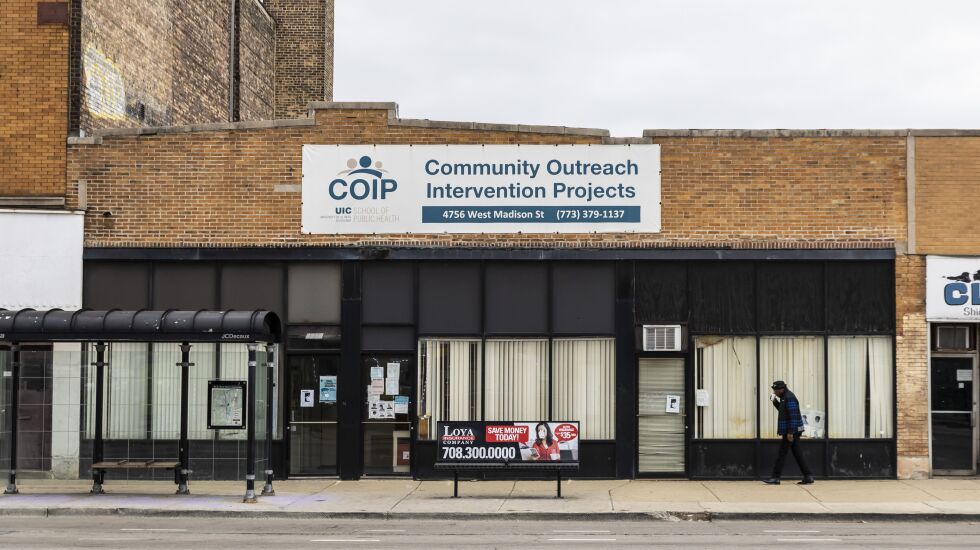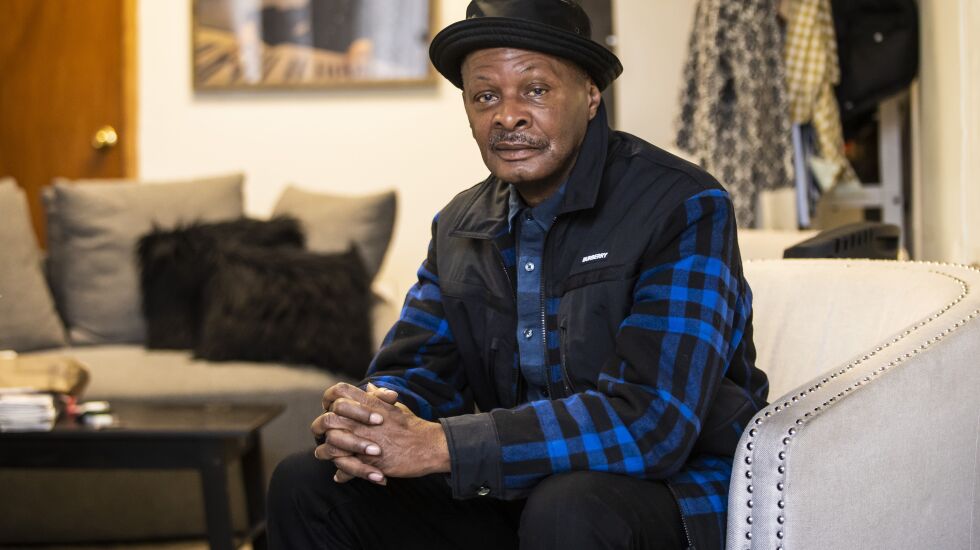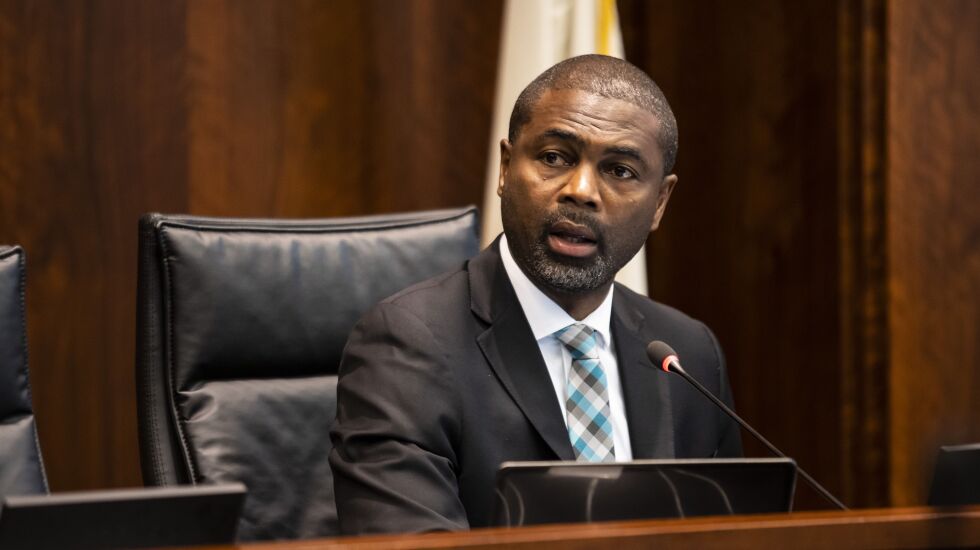
For years now, brothers Malcolm and Marnell Brown, along wth Shrone Conaway, have tried to help people on the West Side, offering a place to stay for those who needed it, connecting people with COVID testing or substance abuse counseling.
They’ve done so with the help of organizations like Howard Brown Health and University of Illinois, but now they’re digging deep into their own pockets to expand their outreach.
The three pooled about $500,000 in savings to purchase a building in Austin, where they plan to open a community center — the Nelson Mandela Center — offering resources for people who need food, housing or jobs.
The trio have rented spaces within the building for years but decided to buy it to expand operations and ensure they endure. The building is at Madison Street and Cicero Avenue. That stretch of Cicero has the honorary designation of Mandela Road, which inspired their choice of name.
“We are saving the community that once saved us,” said Conaway, 55, who grew up on the West Side.
The Nelson Mandela Center will occupy about 27,000 square feet of the property and will continue the work of Marnell Brown and Conaway’s organization, To Walk in My Shoes, and The Herbert Ballard Foundation, founded by Malcolm Brown.
The Ballard Foundation has helped house women in recovery from substance abuse since 2014. Since 2018, To Walk in My Shoes has helped area residents deal with challenges including HIV/AIDS, violence, domestic abuse and substance abuse.
“We wanted to help people get themselves back together” after a setback, Conaway said.

Among Chicago community areas that track such data, Austin has the second highest incidence of HIV in the city, according to the Chicago Health Atlas. It also has the highest incidence of opioid-related overdose mortality.
In the new space, residents can seek help in connecting with city and state resources, including those that deal with housing assistance, food insecurity and employment, Conaway said, adding she hoped to create an after-school space for kids as well. The younger Brown will help run apartments for men in recovery.
They plan to have the space fully operational by fall.
The first step to opening is getting it fixed up, said Marnell Brown. The three are working on getting a Neighborhood Opportunity Fund grant from the city to help with remodeling.
But that won’t delay the work they do, the 64-year-old said.
Brown said he and Conaway — they’ve dated for eight years — got heavily involved in the community after discovering similar ambitions for helping improve the area.
“I feel what you feel, and we feel what the community feels. Let’s do something about it,” he remembers saying to Conaway. Their goal was helping people “to rise up out of these conditions we were in spiritually, emotionally, physically, financially.”
All three have worked out of various West Side properties over the years, but they hope the center will help transform the block.

Their efforts have drawn the support of state Rep. La Shawn Ford, whose office is in the area.
“My goal is to get them money for renovations and for their services. Their clients are the most vulnerable people on the West Side,” he said.
Ford said he would try to get funding for their efforts into the state’s next budget because he believes they could help like few others could.
“What’s amazing about this group is they’re actually the very people that understand the population probably better than anybody, because they have their lived experience,” he said.
Malcolm Brown, 61, echoed those sentiments, saying he’s experienced homelessness and substance abuse and knows the steps people must take to recover.
He said since his family moved into the area the 1960s, the area has declined. Their corner property, he hopes, can anchor a new beginning and be a place the whole community can learn the steps to recovery.
“People need to be able to understand you don’t have to live the way you’ve been living,” he said. “There’s a better way.”
Michael Loria is a staff reporter at the Chicago Sun-Times via Report for America, a not-for-profit journalism program that aims to bolster the paper’s coverage of communities on the South Side and West Side.







